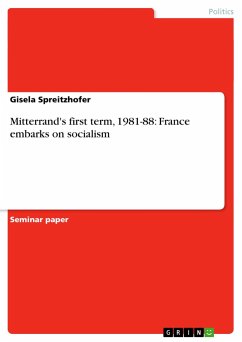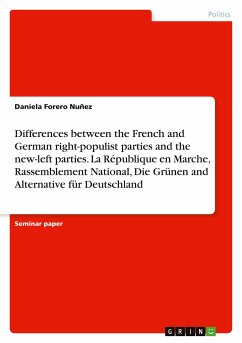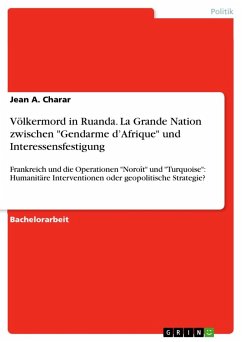Seminar paper from the year 2006 in the subject Politics - International Politics - Region: Western Europe, grade: Gut, School of Advanced Internatl. Studies (School of Advanced International Studies (SAIS)), course: French Politics, language: English, abstract: François Mitterrand's election as president of the French Republic on May 10, 1981 marked the beginning of a new era in French politics. For the first time in the Fifth Republic, a socialist had become head of state. The new prime minister Pierre Mauroy formed a ministry that consisted mainly of socialists. Their power was enormous after winning clearly the majority in the National Assembly one month after the presidential elections, reducing both the communists and the conservatives by half. Mitterrand formed a coalition of socialist and communist parties whose goal was to redistribute power between state and society and within society itself.This paper's purpose is to assess the achievements and the drawbacks of the socialist experiment launched by Mitterrand in 1981. It proceeds in a chronological order; thus the first part is dedicated to Keynesian redistribution and its limits in 1981-82, the second will deal with austerity measures implemented from 1982-84, the third addresses Fabius' modernization efforts from 1984-86, and the fourth will cover the 1986-88 cohabitation period. The fifth part will be devoted to the relationship between state and society under Mitterrand. Finally, some concluding remarks will finish the paper in the sixth part.
Hinweis: Dieser Artikel kann nur an eine deutsche Lieferadresse ausgeliefert werden.
Hinweis: Dieser Artikel kann nur an eine deutsche Lieferadresse ausgeliefert werden.








